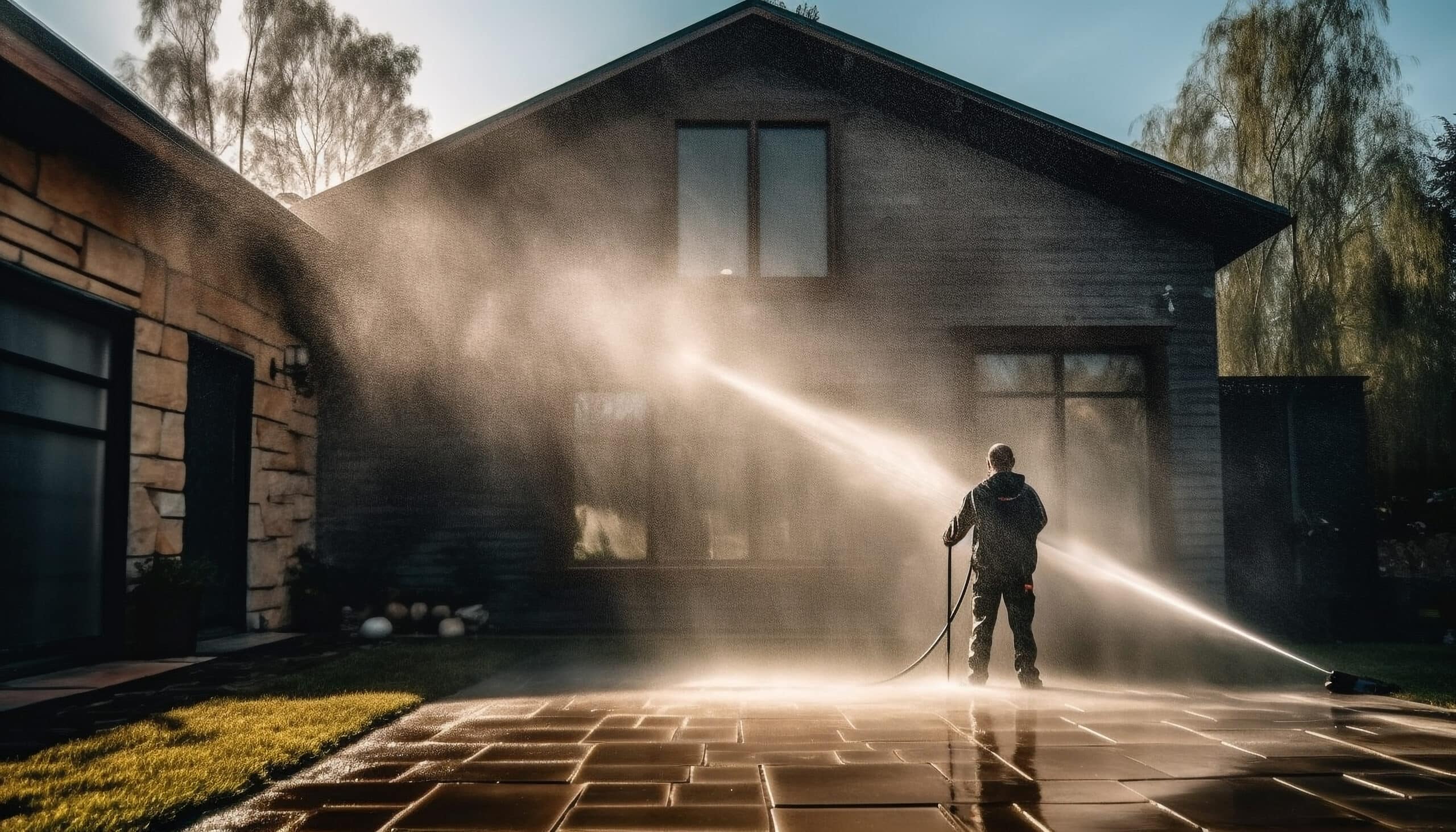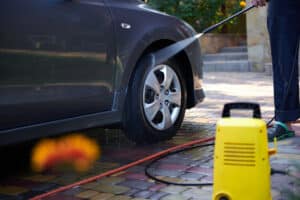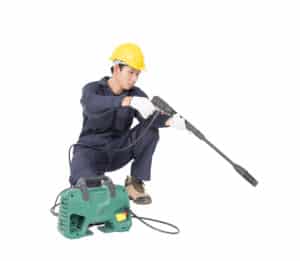Can I Use a Gasoline-Powered Pressure Washer Indoors?
Key Takeaways
- Using a gasoline-powered pressure washer indoors poses significant risks to both your health and the safety of your home.
- Gasoline-powered pressure washers produce carbon monoxide, a highly toxic gas, and using them in enclosed spaces can lead to severe health consequences.
- Using a gasoline-powered pressure washer indoors increases the risk of fire hazards, explosions, and structural damage.
It is crucial to prioritize safety when using pressure washers, especially when considering whether or not to use a gasoline-powered pressure washer indoors. The simple and straightforward answer to this question is a resounding no. Using a gasoline-powered pressure washer indoors poses significant risks to both your health and the safety of your home.
The Dangers of Gasoline-Powered Pressure Washers Indoors
Gasoline-powered pressure washers should never be used indoors due to the inherent dangers they pose. These types of pressure washers produce carbon monoxide, a colorless and odorless gas that is highly toxic. When used in enclosed spaces, such as garages or barns, the concentration of carbon monoxide can quickly reach dangerous levels, leading to severe health consequences.
The National Institute for Occupational Safety and Health (NIOSH) warns that exposure to carbon monoxide can cause symptoms like drowsiness, dizziness, headaches, and confusion. In extreme cases, carbon monoxide poisoning can be fatal. The risks associated with operating a gasoline-powered pressure washer indoors are not worth the potential damage it can cause to your health and well-being.
Fire Hazards and Explosions
Using a gasoline-powered pressure washer indoors also increases the risk of fire hazards and explosions. Gasoline is highly flammable, and any spark or malfunction in the pressure washer’s ignition system can lead to a fire. Additionally, the accumulation of gasoline fumes in an enclosed space can create an explosive environment, putting you and your property in grave danger.
Structural Damage
Another important consideration when using a gasoline-powered pressure washer indoors is the potential for structural damage. The high-pressure water stream produced by these machines can be powerful enough to strip paint, break windows, and damage walls. Using a pressure washer indoors may result in costly repairs and compromise the integrity of your home.
Alternative Options: Electric Pressure Washers
While gasoline-powered pressure washers are not suitable for indoor use, there are alternative options available. Electric pressure washers are a safer choice for indoor cleaning tasks. They do not produce carbon monoxide or emit harmful fumes, making them a more suitable and environmentally friendly option for indoor use.
Electric pressure washers are powered by electricity and can be easily connected to outlets. They are generally less powerful than gasoline-powered pressure washers, but they still provide enough pressure for most household cleaning tasks. When using an electric pressure washer indoors, it is essential to follow the manufacturer’s instructions and safety guidelines to ensure safe and effective operation.
Conclusion
In conclusion, it is crucial to prioritize safety when using pressure washers. Using a gasoline-powered pressure washer indoors is highly dangerous and can have severe consequences. The risks of carbon monoxide poisoning, fire hazards, explosions, and structural damage are too great to ignore.
To ensure your safety and the safety of your home, it is vital to strictly avoid using gasoline-powered pressure washers indoors. Instead, consider using electric pressure washers, which are a safer alternative for indoor cleaning tasks.
Related Websites:
FAQs:
Q: Can I use a gasoline-powered pressure washer indoors?
No, it is not safe to use a gasoline-powered pressure washer indoors. Gasoline-powered pressure washers produce toxic fumes including carbon monoxide, which can be extremely harmful when inhaled in enclosed spaces. It is important to always use pressure washers in well-ventilated areas to ensure safety.
Q: What are the advantages of gasoline-powered pressure washers?
Gasoline-powered pressure washers have several advantages. They provide more power and higher pressure compared to electric pressure washers, making them suitable for heavy-duty cleaning tasks. Gasoline-powered pressure washers are also portable and do not require access to electricity, allowing for greater flexibility in outdoor cleaning projects.
Q: What are the risks of using gasoline-powered pressure washers indoors?
Using gasoline-powered pressure washers indoors can pose serious risks. The fumes produced by the engine contain carbon monoxide, which is a colorless and odorless gas that can be fatal when inhaled in high concentrations. Additionally, gasoline-powered pressure washers generate heat and can ignite flammable materials, leading to fire hazards.
Q: What are the alternatives for indoor cleaning?
For indoor cleaning, it is recommended to use alternative methods that are safer and more suitable. Electric pressure washers are a great option as they do not emit toxic fumes and can be used indoors with proper precautions. Other cleaning tools like steam cleaners, vacuum cleaners, or mops are also effective for indoor cleaning tasks.
Q: How should I ensure safety when using pressure washers?
To ensure safety when using pressure washers, follow these guidelines: 1. Always read and follow the manufacturer’s instructions. 2. Use pressure washers in well-ventilated areas. 3. Keep a safe distance from electrical sources and flammable materials. 4. Wear appropriate protective gear, such as goggles and gloves. 5. Regularly inspect the pressure washer for any damages or leaks. 6. Store and handle fuel properly. 7. Never use a gasoline-powered pressure washer indoors.






